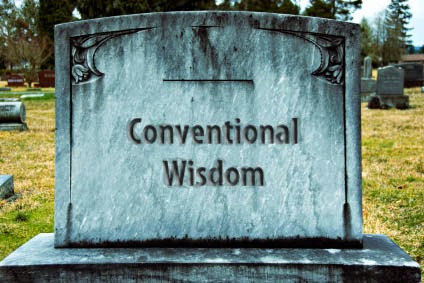As I came closer to the anniversary of Kevin's death a number of widowed friends told me that they found the second year to be worse that the first. I asked them why and they all said, essentially, that the numbness had worn off. I didn't know what to think.
Now, less than a month into the second year, I am beginning to get it. I don't think it's that I'm less numb (though that may be part that I can't recognize yet) but it's something about magical thinking that is encouraged by conventional wisdom. Conventional wisdom suggests that after a year I should feel better. Part of me has bought into that. There is a part of me that keeps thinking I've been good. I've been doing my best to be okay. I've been REALLY good. So you can come back now. I'm a good girl, right? There is so much cognitive dissonance in grief and so much frustration over the fact that I can change none of this. I have never been so powerless. No matter how good I am, no matter how diligently I move through the world, Kevin is gone and I will never, ever, ever see him again in this life. Which looks to be annoyingly long. Conventional wisdom is wrong. I don't really feel better, but I sometimes thing I should.
That's part of what I'm having trouble with as I move into this second year of life without. I think part of me thought that, if I got through the first year, got through all of the firsts, that things would somehow be different. That Kevin would somehow be back in my life or at least I would feel more balanced. I feel no better today, 56 weeks after his death, than I did 51 weeks after his death.
Conventional wisdom does us as much harm as good here. Because on some level I had some expectation that things would be different in the second year, the ongoing pain feels sharper, even if it is little different from the pain yesterday or a month ago. What's more, because of the conventional wisdom that it takes about year (to my shame I know I've said that to people before I experienced loss. Please forgive me.) others' expectations of how I should be doing are skewed. Grief takes as long and as much as it takes. Today it's taking a lot, my face is stinging from my tears. Tomorrow it might take less. I won't know until tomorrow comes.
I do know that this second year is bringing its own set of first. The first time I celebrate his birthday without him for the second time. The first time I observe Passover without him for the second time. The first time I experience the without for a second time. Layer upon layer of memory. Our lives are sedimentary.
I imagine this time next year I will write something about how the second year was both better and worse than I had hoped. I imagine there will be new ease and new pain. I don't know who I will be in a year. All I know is it will be another year, another layer, another set of new first and new withouts.
(c)2015 Laura S. Packer











